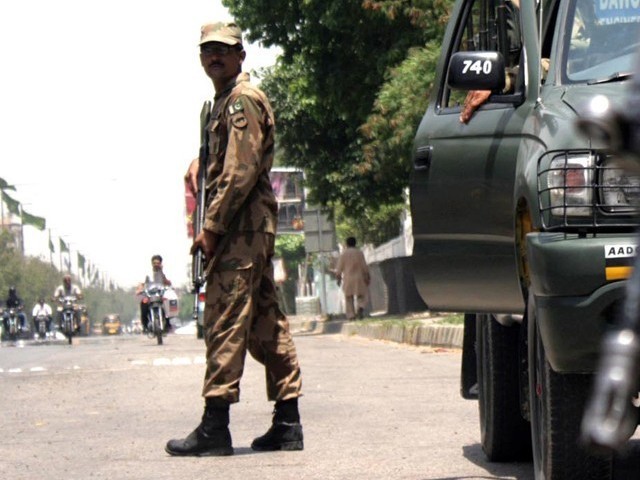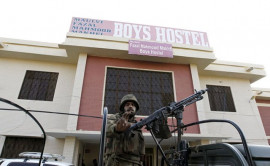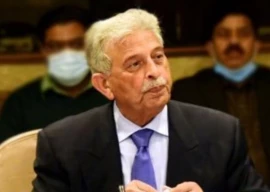
Militarisation of all sectors of civilian authority is damaging the democratic system, the Human Rights Commission of Pakistan (HRCP) said on Sunday.
A statement issued at the conclusion of the HRCP Executive Council and annual general meetings on Sunday said: “HRCP must voice its grave concern over what can only be described as omnipresent militarisation of the country. It also has a negative impact on the rights of individuals and groups. HRCP demands that civilian oversight of all military actions must be ensured without exception and progress should be shared with the people regularly.”
“Freedom of speech and media, protest, movement and assembly are being violated and curbed on the pretext of ‘national security’ or ‘national interest’. Even expression of genuine apprehensions over development plans or commitments made by the government are being rubbished as being against ‘national interest’,” the statement said.
The commission stated that the China-Pakistan Economic Corridor (CPEC) had acquired an aura of such official sanctity that any information sought on its details or airing reservations over its implementation were being denounced as acts of anti-nationalism. “HRCP also demands an immediate and thorough environment impact assessment of the CPEC project. The impact on the people being dislocated and the economic benefits to the local people should also be assessed,” it stated.
“Important aspects of the counter-terrorism strategy devised after the Army Public School (APS) attack in December 2014 have not been implemented. There has been no progress on activating the National Counter Terrorism Authority (NACTA) and undertaking police, judicial and madrassah reforms. Action against hate speech remains a largely pick-and-choose affair,” it stated. The commission expressed serious reservations over the manner of holding elections on reserved seats for minorities and women. “The present scheme of representation is unfair. Parliamentarians should amend the law to devise a formula for special seats that is both representative in character and based on the choice of the electorate, rather than that of the leaders of the political parties,” it stated.
“The work environment has grown progressively insecure for human rights defenders. Besides new requirements for registration process, the civil society organisations routinely face harassment, and threats,” it stated.
Published in The Express Tribune, April 4th, 2016.


























1714024018-0/ModiLara-(1)1714024018-0-270x192.webp)









COMMENTS
Comments are moderated and generally will be posted if they are on-topic and not abusive.
For more information, please see our Comments FAQ